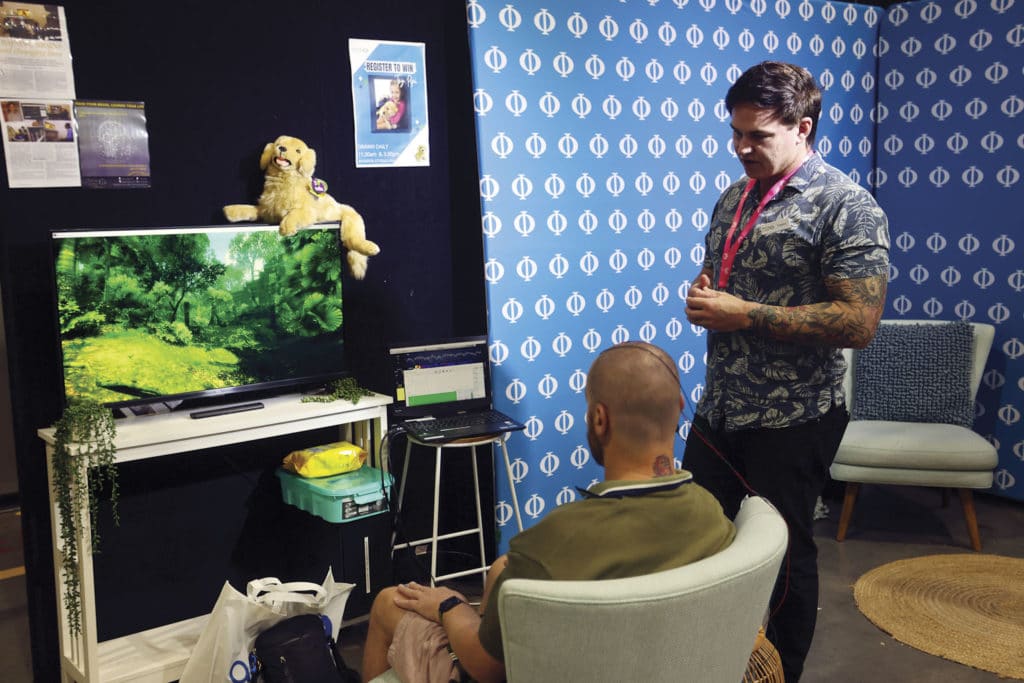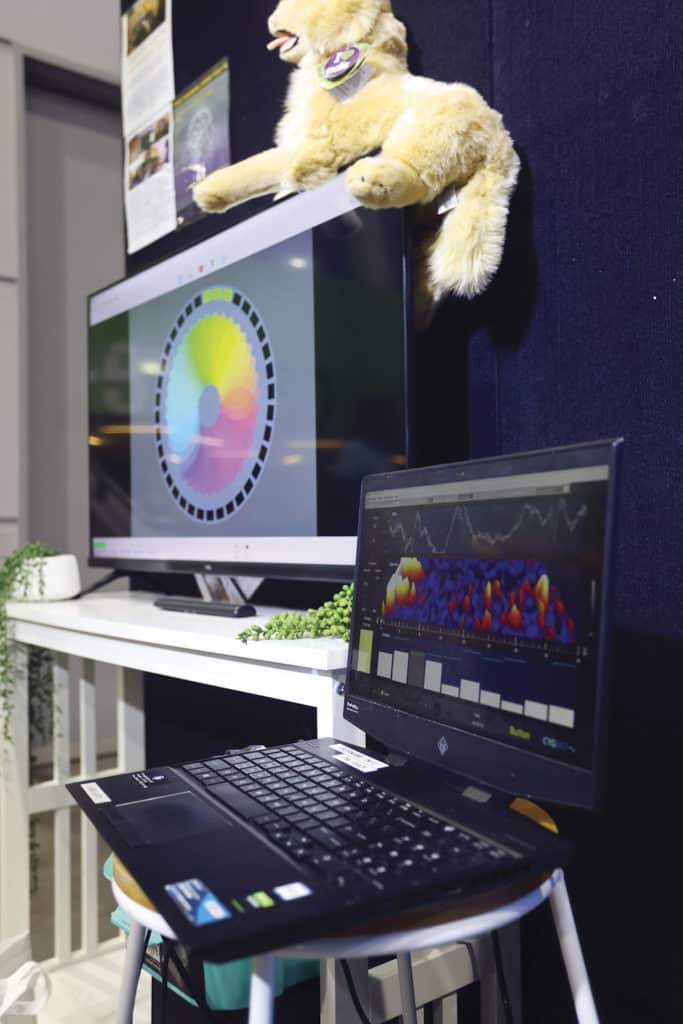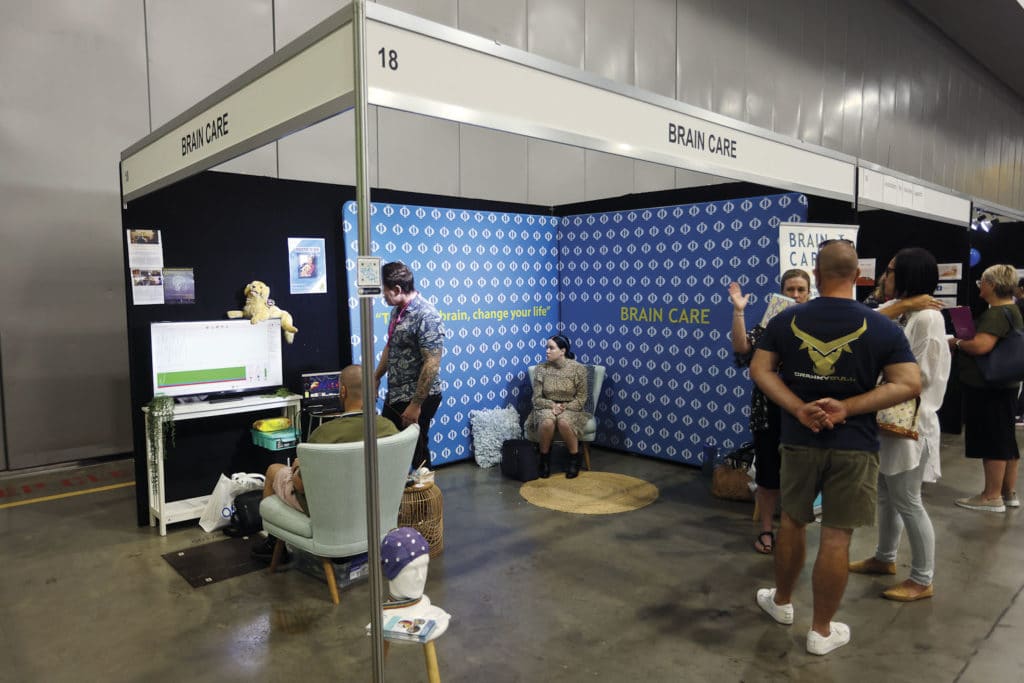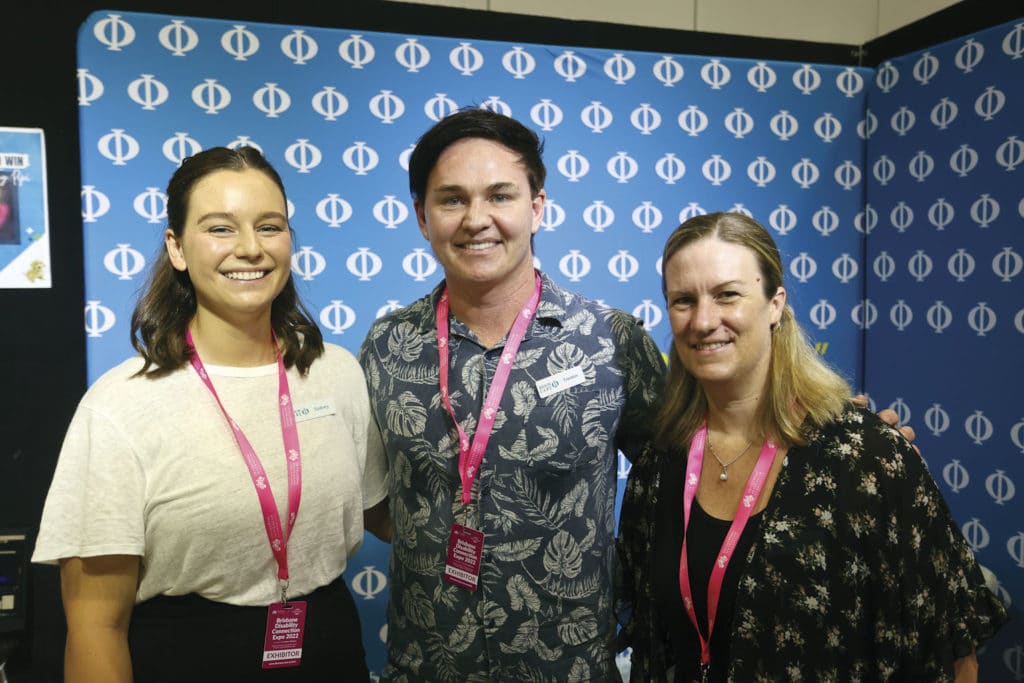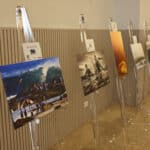MENTAL HEALTH
Expo showcases Brain Centre’s connections
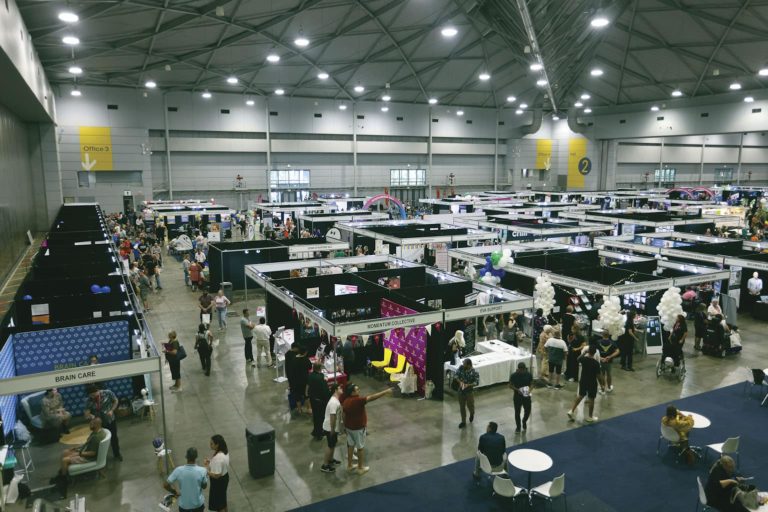
WORDS: Greg Pride PHOTOGRAPHY Brian Usher - www.usherusher.com
The Brain Centre’s NDIS-registered neuromodulation services are helping equip clients with the skills they need to ‘train their brain and change their lives’.
IT’S a sunny Saturday morning and the Brisbane Convention and Exhibition Centre is buzzing with activity. Hundreds of people – many of them with wheelchairs, prosthetics, carers or guide dogs – are filing into the sprawling exhibition hall.
Inside are all manner of colourful exhibits and stalls offering an array of products and services aimed at helping make the lives of the disabled, their carers and loved ones just that little bit easier. The occasion is the Brisbane Disability Connection Expo, an annual event put on by Developing Australian Communities to connect NDIS providers and scheme participants. Thousands of people have registered to attend the two-day exhibition, where some 300 exhibitors are showing their wares to an enthusiastic crowd. Among them is Brain Care, a Tweed/Gold Coast-based NDIS-registered provider of neuromodulation services to optimise brain functioning.
Brain Care exhibited at the expo for the first time this year and was also a gold sponsor.
Its highly interactive stand was one of the most popular at the expo, with large queues of people forming to try Brain Care’s innovative neurofeedback therapy and discuss other treatments to assist with a wide range of psychological and neurological issues including brain injury, autism, ADHD, trauma, depression and anxiety.
A team of Brain Care clinicians was on hand to demonstrate the fascinating neurofeedback technique, which has helped hundreds of the service’s clients ‘train their brain and change their lives’.
Neurofeedback therapy uses tiny electrodes attached to the patient’s scalp as they listen to music or watch a movie, sending subliminal messages to correct the way the brain is responding to the images or sounds on the screen.
Among those trying the therapy live at the expo was Brisbane man Ryan Stokes, who suffered a serious brain injury when he was bashed by a group of men outside a hotel in 1993 when he was 19.
“I was in hospital for six months, including six weeks in a coma in ICU,” he says. “I had to relearn how to walk and talk again. It was a near-death experience and it’s been a long road back. You have a head injury and you’re left thinking ‘where do I go? I have to start my life again’.”
Ryan said he was visiting the expo for the first time to look for acquired brain injury-specific treatments and therapies that might help him further, such as those offered by Brain Care.
“I currently wear a mollii suit, which is assisted technology from Sweden,” he says. “It’s like a lycra bodysuit that has electro pads throughout it and it provides electrical stimulation to help reawaken and reinvigorate me. It’s also helped me lessen my gait. The neurofeedback therapy is very interesting and something I’d definitely like to look into further to see if it can provide significant improvement.”
Another expo attendee, Evelyn Cordell, 17, stopped in at the Brain Care stand to try the neurofeedback therapy to see if it might help her profoundly disabled older sister, Ashley.
“I’m the eldest after her and we have a close connection,” says Evelyn, who is studying aged care at high school while also working part-time in the sector as an assistant nurse. “Ashley has a lot of intellectual and physical disabilities but she’s a beautiful person and I came here to the expo hoping to find some services that might help her and my mum.
“I also deal with my own mental illnesses so Brain Care was something that really intrigued me. I did the first breathing exercise and didn’t go too well but as soon as I had the neurofeedback therapy, my breathing improved noticeably. It really surprised me and I just thought that overall, it was really, really cool.”
Brain Care’s Sydney Stokes says the expo was a resounding success, allowing the business to connect with NDIS scheme participants and network with other providers.
“There’s been such an amazing turnout and everyone is just so interested to learn what we’re about,” she says. “There are no other stalls around in the expo like this – everyone keeps saying, ‘this is so cool’. And it’s been really good to show everyone what neurofeedback therapy looks like because it’s normally the sort of stuff that happens behind the scenes. You don’t get to see the equipment – what the therapies look like – so to actually have that demonstrated is attracting a lot of interest.
“There’s a lot of fear around neuroscience – people think it’s more medical and a bit confronting – but everyone’s having a great time laughing and interacting with us, so it’s been great.”
Brain Care has been a registered NDIS provider since 2017 and Sydney says its services are becoming increasingly recognised and respected.
“The NDIS is often seen as providing ongoing, lifelong support, whereas we try to focus more on short-term, intensive intervention so that we can reduce the support over time,” she says. “The NDIS is now starting to understand that in a really positive way, making it easier for our clients to get NDIS approval for our services. It’s about trying to equip someone with the skills they need to continue and do better in their lives.”


